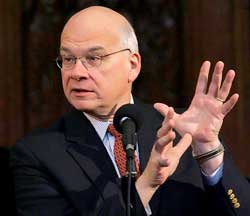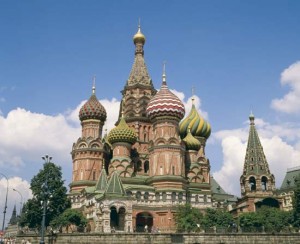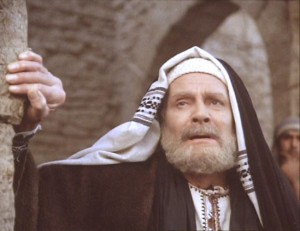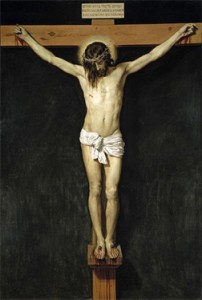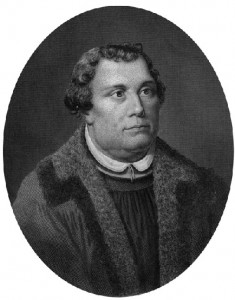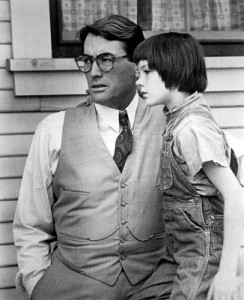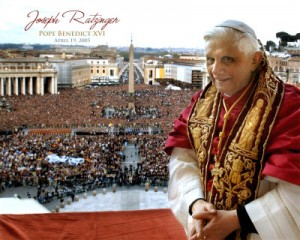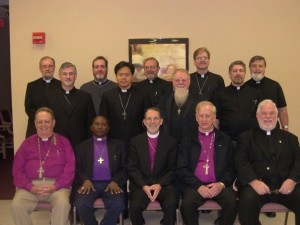
A Summit of a Different Sort
Just in case you have been wondering what I have been doing all week, I attended the first annual CEC Theological Summit in Orlando, Florida. The theme of our conference was *Toward a Theology of Convergence.* Our summit focused on the three streams of the historic faith: evangelical, charismatic, and sacramental. I wrote an essay on the evangelical stream and I shared those Reformed theological truths on Wednesday morning. My talk/address/sermon focused on the Cross, the exchanged life, evangelism and mission, priesthood of all believers, penal substitution, total depravity, heart conversion, imputed and imparted righteousness, and sola scriptura. You can see that I covered many doctrines in my hour and fifteen minutes, the time flew by quickly. I greatly enjoyed the experience: special thanks to Bishops Bates and Simpson for the opportunity.
The Charismatic Episcopal Church is part of a growing movement, which recognizes that for the church to be truly catholic in its faith and practice, it needs to integrate the three major streams of the Christian tradition: the evangelical, the charismatic, and the sacramental. I enjoyed hearing the four addresses which focused on the theological truth of each stream and a wrap-up talk on convergence. The talks revealed among our clergy a passionate love for Jesus combined with deep commitment to the historic truths of our faith: a rare combination indeed. The depth of theological thinking was quite amazing for a small communion. In addition, the spirit of unity and camaraderie among our clergy who hail from diverse theological backgrounds was personally encouraging.
Below, Bishop Epps conveys better than I ever could the spirit, tone, and tenor of our conference.
Christus Victor,
Cn. Glenn
IMPRESSIONS OF A THEOLOGICAL CONFERENCE
Bishop David Epps
One would think that a week-long meeting on theology would not be a riveting affair. At least, that was my assumption before I traveled to Orlando, FL a few days ago to be an observer at our denomination’s International Theological Conference.
The participants were tasked with presenting to the Bishops of our Church and to the larger communion a coherent and understandable “convergence theology,” which has to do with the synthesis of the evangelical, sacramental/liturgical, and Pentecostal/charismatic expressions of the Christian faith. Not very interesting, perhaps, for the average person, but the transmission of theology is vital for the future orthodoxy, survival, and prosperity of any denomination or movement. I came away with several impressions:
My first impression was how brilliant the “presbyter/theologians” of our denomination are. For us, a “presbyter” is a priest and these men are not ivory tower people who study for a living. They are pastors who, every week, visit the sick, preach, celebrate the Sacraments, deal with commissions and committees, counsel, hear confessions, and consistently do the “grunt work” of ministry in their home parishes. But “theologians” they truly are. The theological position papers they presented were as thorough and profound as any I have ever seen.
These men are Doctors of Philosophy, Doctors of Ministry, Doctors of Theology, Canons, Theologians, seminary professors-all of whom have extensive background in both academics and pastoral ministry. Though reasonably well-educated, I was not the smartest guy in the room-not by a long shot!
My second impression was how passionate these men were in their presentations. Like many people, I have been in academic or ecclesial settings in which papers, presentations, or sermons were presented in a way that sucked the very moisture out of the air-they were, in other words, dry as dust and dead as nails. Not so in Orlando. The presbyter/theologians almost “preached” their papers with as much passion as a Baptist evangelist. One could sense that the papers had been bathed in prayer and that the presenters had been empowered by a divine encounter.
My third impression concerned the respect and civility demonstrated toward conflicting points of view. I have been in many arenas where egotism was the order of the day and opposing views were not tolerated. The presenters listened to each other with a serious intensity and, even when disagreements were expressed during the open discussion time, there was a fraternal respect and a brotherly love and concern demonstrated. True humility was in abundance.
The fourth impression was how long it takes to “do theology.” The Church stills struggles with concerns that have been on the table for two thousand years. We are in a “quick-fix” society but serious theological grappling may take years, decades, or even centuries. The Church must be committed to the long view and eschew shortcuts.
The fifth impression was that the denomination in which I serve is in good theological hands. We will make mistakes, as we have in the past, but I am confident in the future. I believe that our children and grandchildren will be left a very good legacy, which, in turn, they will pass on.
I can imagine that the Church Fathers, the theologians of days past, and the faithful scholars and bishops of the early Church had little concept of the impact they would have on the future generations. Putting quill to parchment, writing by lamps filled with oil, suffering heat and cold, privation and persecution, those early leaders struggled to communicate the faith to their present generation and their works and influence remain with us today. I could imagine that, prior to coming to Orlando, these presbyter/theologians, though blessed with modern technology and comforts, were in a long line of people who were, quietly and without reward or fanfare, seeking to communicate timeless truth. God bless the scholars and theologians among us!
Bishop David Epps is the founding pastor of Christ the King Church, 4881 Hwy 34 E., Sharpsburg, GA 30277. He also serves as a Bishop to the Mid-South Diocese (www.midsouthdiocese.org).
